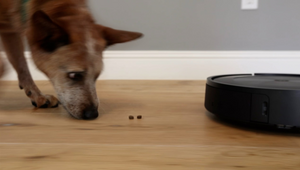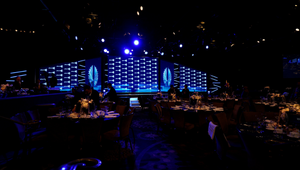
Could AI Replace the “Humanity” of Animation?

In the hype and clamour of the industry’s buzz regarding AI, there’s been an undertone of uncertainty. At times, it borders on fear. There’s a sense that it’s people who create for a living who could stand to lose most from the rise of artificial intelligence, as a relentlessly efficient and automated machine gradually learns the tricks of our respective trades.
How long, for example, before a fully-AI ad wins an Immortal Award? Or, for that matter, how long before one starts writing and conducting these very interviews? Perhaps an AI has even penned this introduction…
It’s precisely that kind of murky thought process which leaves many of us fearing the worst when it comes to AI’s impact on creativity. It’s also the reason why LBB wants to shine more light on the specifics. How is this technology actually being used in the industry right now, for example?
To find out, we sat down with Andrew Jerez - co-founder of the creative studio Warm & Fuzzy. Whilst Andrew has wasted no time in incorporating AI into his day-to-day work, he also has some fascinating insights into its long-term impact on the way we work…
LBB> Andrew, can we start by talking about how exactly you’re using AI day-to-day right now?
Andrew> We’re using it a lot, but it’s mostly tangential to our core pipeline and creative processes. If we need to write a quick script or get some coding assistance, then we will use Chat GPT. On a couple of occasions, we’ve used Generative AI for very basic concept art. Or perhaps a client might come to us asking for upscales within a very tight timeline, and we’ll use AI to extend the scene.
So it’s usually small tasks within a project where we can use AI on an ad-hoc basis. It’s not integrated into our pipeline, so to speak - it’s more of a tool we pick up and put down as we go.
And that’s because it doesn’t feel like the technology is fully production-ready. At least, not yet.
LBB> So are you using it more on an experimental basis, or with the belief that it is going to evolve into something which genuinely changes the nature of the work you do?
Andrew> It’s a little bit of both. There are some menial tasks like rotoscoping, basic frames, or set extensions where it’s not hard to imagine how AI might take those out of human hands in the near future. But in the bigger picture that’s about speeding up our workflow, not reinventing it.
Then you also have the ‘inspiration’ element of Generative AI. For example, I use Midjourney all the time. It helps with mood boards, and conceptual ideas that do help change the way we think about certain briefs and challenges. There have been a few occasions where someone has shared an AI-generated set of imagery around the office as a way of visualising a different approach we could take. That’s quite invigorating.
LBB> One of the themes we’ve been seeing in stories about AI is a fear that it could outright replace creative people. I don’t know if you’ve seen the controversy around the opening credits of Marvel’s Secret Invasion, for example. What’s your take on that?
Andrew> I don’t think it’s as simple as AI ‘replacing’ creative people. In the specific case of Secret Invasion, my understanding is that there was some creative intention behind the use of AI for that sequence because it was linked to the story of that series. Also, there was plenty of artistic oversight and guidance in the sequence. It’s not like they fed a prompt into an AI and just ran with whatever it spat out.
More broadly, we all need to be realistic about this. It’s likely that we’ll see a lot more of that kind of ‘artistic guidance’ for AI imagery, for example. But that’s absolutely not the same as AI ‘replacing’ human artists, and I don’t think that is something which is going to happen.
When our clients come to us, they do so with very high creative expectations. They’re looking for a thoughtful execution done with a specific purpose in mind. I haven’t seen anything like that come from an AI - it’s more of a technical execution. Of course there’s no telling what’s coming in the future, but for now that’s how I see it.
LBB> Do you think it’s going to change what it means to be an animator, or a VFX artist? Because it’s able to take up so much slack on the technical side of things?
Andrew> I think that’s inevitable, yes. Let’s be honest, it won’t be the first technological breakthrough to change what it means to be an animator, and it’s not going to be the last. This industry has always evolved in tandem with what’s possible technologically.
Look at what’s already been happening in terms of digital doubles, and Harrison Ford in the most recent Indiana Jones movie. There’s no question that this tech is changing the industry, and our roles will change as a result of that.
But it’s still a process which needs artist involvement along the way. It’s not about pressing a button and getting a piece of finished work out the other side. And it never will be. You’re still going to need professional artists to provide any guarantee of quality.
LBB> So you’re not worried that, by engaging with AI in that way, we’re eventually going to train it to take over from us?
Andrew> Ha - well, now we’re getting into the world of predicting the long-term future which is anyone's guess, really. All I can speak to is how I see the technology being used right now, and how it might evolve based on that evidence. Are we all going to be turned into second class citizens by AI overlords? Maybe we will - but not based on the interactions I’ve had with AI up to now.
I don’t mean to dismiss the economic question about whether future clients might prefer a ‘cheaper’ alternative to human art, and all the knock-on effects that will have. That is a serious question, but it’s about society, economics, and where we want to place - or how we define - the value of art. It’s not about training up an evil robot to make those decisions for us.
LBB> Is there a danger we could lose the ‘human’ art of animation?
Andrew> There’s a really important distinction in this question. I think we can say that AI is a threat to ‘art’ as a medium, but less dangerous to artists themselves. Artists are using AI as a tool - so in that sense it’s as much of a ‘threat’ to them as a paintbrush.
But your question is about humanity in the craft of animation. And I think AI is a threat to that, certainly. There will always be a certain subset of people who are passionate about making things and obsessed with the process of what goes into that. But as far as mainstream culture is concerned, there’s a danger that we will collectively lose our respect for art. You could argue that this has already been happening because of the sheer amount of content that gets made every day and how the only choice for the average person is what they want to consume, as opposed to appreciating that they have any art to enjoy at all. AI is only going to add to that sense of abundance and cheapening of artistic skills.
So yes, I think that is a genuine concern.
LBB> Before we wrap up, can you speak any more about what we stand to collectively lose if and when that happens?
Andrew> I think you want to ask that question to a philosopher. Maybe we can take some inspiration from the sci-fi stories where robots have taken the grey, menial tasks away from humans and we’re free to explore more creative endeavours. It’s human nature to create, AI won’t take that away.
But the more interesting - and more pertinent - question is what’s going to happen economically. That’s where it gets a little scary because if it falls into the wrong hands then a lot of damage could be done. The robots get to create, whilst we sit and deal with the menial.
It’s important to be responsibly optimistic, though. AI has been helpful to us as a studio in the ways I’ve mentioned, and there’s plenty of reasons for why it might make artists’ lives easier in the short term. That’s all good news. Looking further forward than that, it’s so important that we all engage with the technology and understand it, because the risks are profound.
The future isn’t decided yet. And that’s scary and exciting at the same time.











